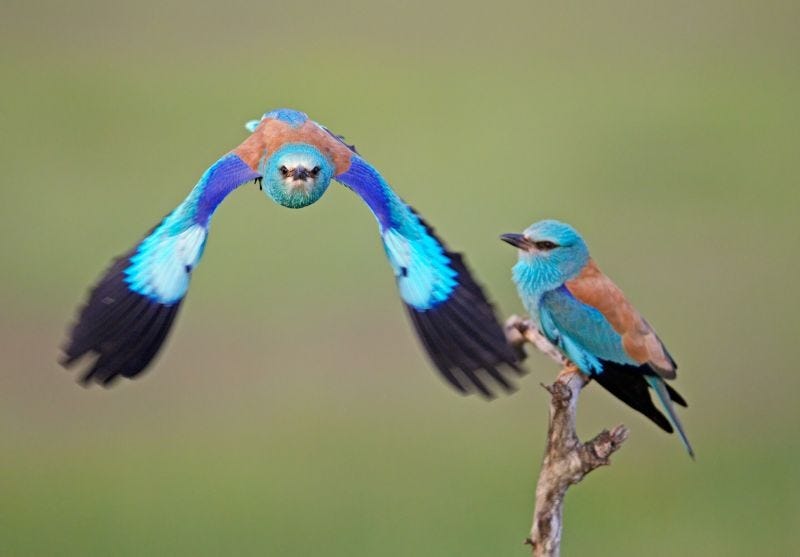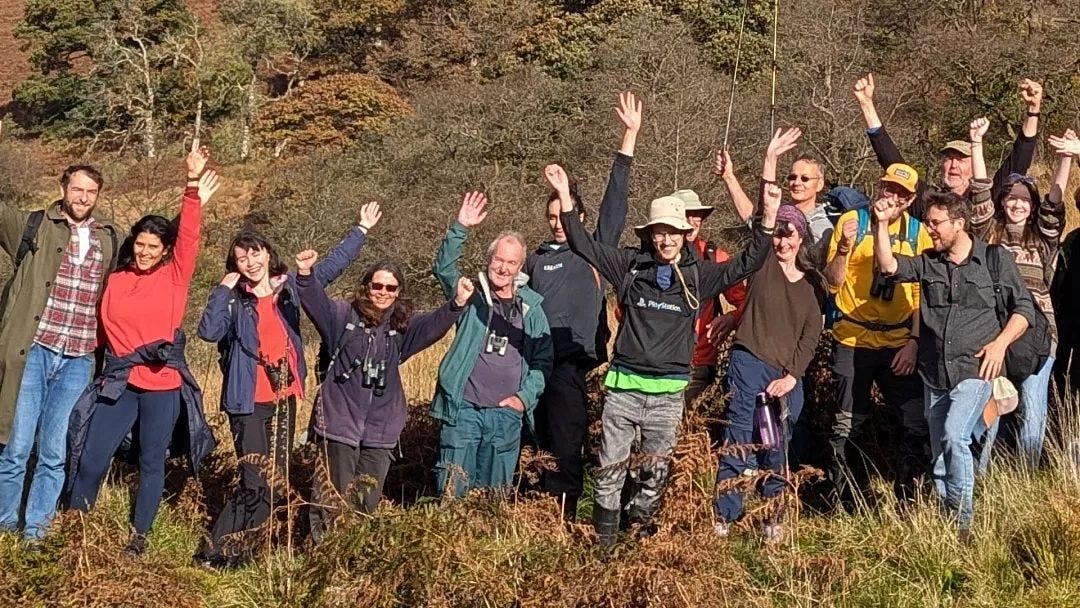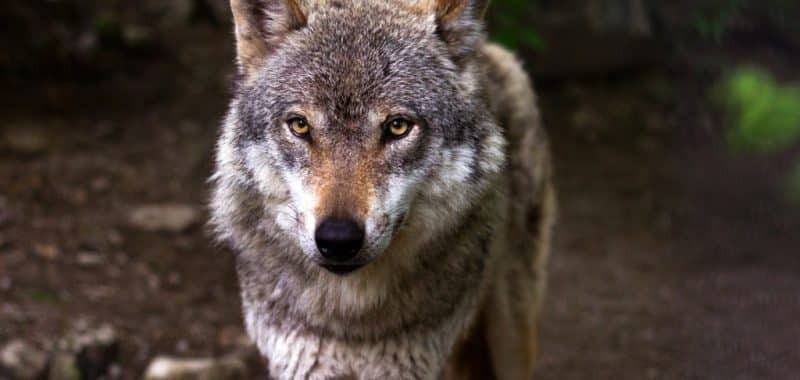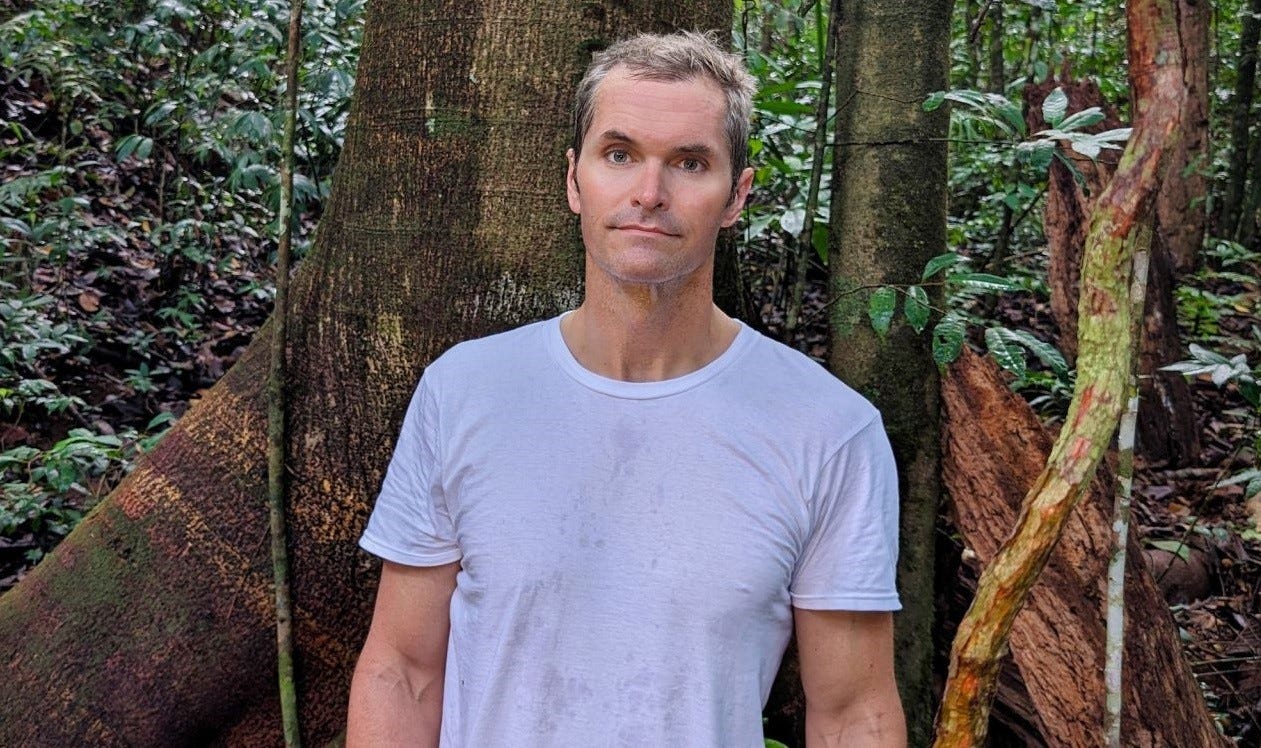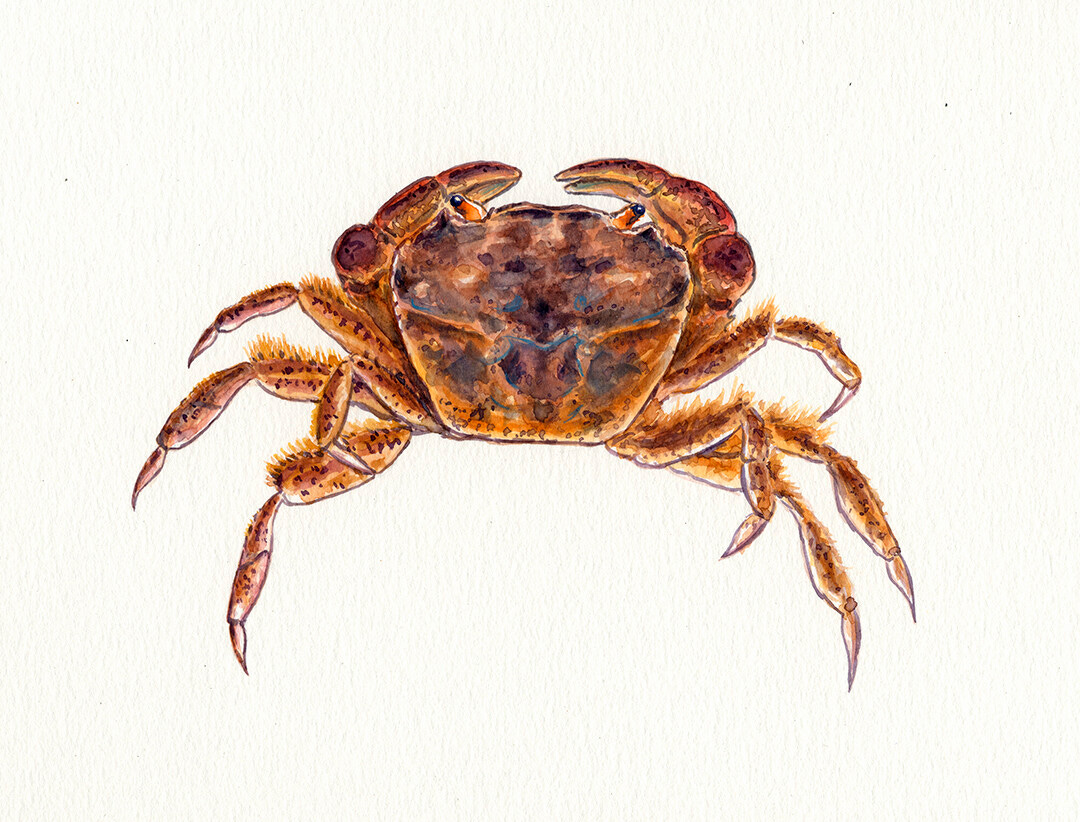Welcome to the latest edition of the Rewilder Weekly.
Before we get into this week's stories - allow me to squeeze in just one more as it's come in just under the wire. Highlands Rewilding has just published its fourth annual natural capital report. Find out what's behind the header 'Too few oysters, too many deer". On a personal note: I love the amazing work that's done on Highlands Rewilding's three stunning estates. My very own Christmas wish is that a wealthy donor with rewilding at heart steps in to ensure that these efforts get to continue.
Now then, on to this week's eight selected stories. Let's rewild the world!
👉 As a reminder: If you come across stories you'd like to see featured in an upcoming edition of the Rewilder Weekly, send them to me and I'll gladly do what I can.
1) The EU Green Deal sees further weakening
Long before the EU's Green Deal legislation was finally pushed through last year (and even that only thanks to one amazingly courageous woman, Austrian Minister and nature hero Leonore Gewessler), lobbies across Europe did their best(worst) do weaken the bite of the proposed legislation. Well, finally that weakened Green Deal was approved last June ... and ever since those aforementioned lobbies have continued their insidious work.
In his insightful post, Frans Schepers, Co-founder and Executive Director at Rewilding Europe, details recent decisions that have further weakened regulations. Scientists keep urging policy makers to stop diluting the EU Green Deal and to refocus their attention on what the deal's ambition actually was - and should be! Read about the various ways that are underway to destroy what was for many - even in its watered-down condition - a beacon of hope.
👉 Go here for post and scientists' appeal
2) "Scotland and Wales are trailblazing Europe's nature restoration"
So says the Euronews about the countries' sustained and fervent rewilding efforts. The article (well worth reading!) highlights places and people and hopefully inspires many more - in many more countries - to grab a bit of that Scottish and Welsh passion for rewilding and run with it!
Steve Micklewright, Chief Executive of Trees for Life and co-convenor of The Scottish Rewilding Alliance says, "There is consistent and huge support for nature restoration across rural communities." And Stephen Jenkins, CEO of Tir Natur, talks about the many facets of planned nature restoration if the purchase of a 1'000 acre site becomes reality - here's hoping!
👉 Go here for post and article
3) Rewilding gifts for Christmas, anyone?
'Tis the season when we we're all desperately trying to figure out what we might gift our loved ones? Well, we're rewilders, ain't we!? And so I think you just might find something in the list proposed by Chris D'Agorne, he of How to Rewild. From books to memberships and from beehives to wildflowers - you're sure to find something!
Oh, and if you don't - then just google "rewilding gifts" and you'll find a slew of options, to learn more, to allow others to learn more, to support a charity, to make a statement - biggest gift is, as we all know, when you give time to be with someone - one such shared experience are rewilding experiences - how about you do one of these with your partner?
👉 Go here for post and gift ideas
4) It's high time to end grouse shooting estates
If you are an actual steward of the land, you cherish, you care, you protect - you do not continuously destroy for the benefit of profit, standing, and the fun of killing millions of animals (every year) of an elitist few. I've read Guy Shrubsole's latest book - "The Lie of the Land" - where he details, with a particular focus on England, what rich landowners have been doing, and keep on doing, to England land and thus to English nature. Grouse shooting estates are an abomination in themselves and should long have been a cruel pastime relegated to the past - but more importantly, these many estates (over 150 such estates in England, 300 more in Scotland) are actively engaged in destroying the very land we could and should use to fight the climate and biodiversity crises.
The League Against Cruel Sports says: "Grouse shooting is not a harmless tradition – it is a practice rooted in cruelty, environmental degradation, and greed ... It’s time to put the environment, wildlife, and the public good ahead of profits. Peatlands should be protected, wildlife persecution must end, and landowners must be held accountable for the harm caused by this outdated industry. Together, we can push for a future where our uplands are celebrated for their natural beauty and biodiversity – not for the blood spilled in the name of so-called sport."
👉 Go here for post and in-depth article
5) If you haven't already, join the rewilding communicators!
The Global Rewilding Alliance organizes the Global Rewilding Communicators Network to "connect passionate communicators worldwide to amplify the impact of the rewilding movement. The aim is to connect communicators active in the rewilding movement from all around the world to share best practices, highlight upcoming events, celebrate successes, and foster connections to better support one another."
I have to admit, I haven't been able to join it - but most definitely will! Luckily, the fine folks at GRA have put together a summary of their last get-together, showcasing the power of such a network - and highlighting success stories from India to Argentina and from Scotland to the Philippines. So many good stories - oodles of hope for a biodiversity-rich future!
👉 Go here for post and article
6) These days, a rare bit of good wolf news - thanks to Portugal
As part of a study to promote coexistence with the wolf, Rewilding Portugal conducted interviews with over one hundred people from local communities south of the river Douro. As it turns out, the majority of the surveyed people "are willing to live with Iberian wolves as long as compensation is paid and damage prevention measures are implemented." This is good, but unfortunately it is also rare good news when it comes to the wolf these days. What the Portuguese example shows is that coexistence measures can be embraced and can work, if all work together.
After both the EU and the Bern Convention have lowered the wolf's protection status, the slaughter across Europe just seems to increase (as predicted). As Lucie Wuethrich reports in her most recent post, France is already planning to kill nearly 200 wolves in 2025. The story of fearmongering lobbies and ignoring of scientific fact continues.
👉 Go here for post and article
7) Mongabay founder's top ten LinkedIn highlights of 2024
Rhett Ayers Butler founded Mongabay 25 years ago. From a personal effort to raise awareness about tropical rainforests, a global network grew. Today dedicated journalists around the world are reporting from nature’s frontlines. Rhett says, "It's been incredible to see the contributions of these talented individuals making a real-world impact, from halting destructive projects to inspiring meaningful action."
With the close of the year just around the corner, Rhett looked back at 2024 and selected his personal 10 LinkedIn highlights. From a letter to his daughter to the lessons learned from the past 25 Mongabay years, to Jane Goodall, the wisdom of elders, the vaquita and much more - there's a great deal to be learned. Going forward, definitely follow Rhett and Mongabay. The network's efforts are consistently outstanding.
👉 Go here for post top ten list
8) A bit of a head-scratcher - what would you do?
In a recent article, the BBC details the story of a long-term project to save the artic fox from going regionally extinct in Scandinavia. Over the course of nearly twenty years, the Norwegian Institute for Nature Research has brought the species back from near extinction by releasing over 450 captivity-bred arctic foxes into the wild. When they began only about 50 were left in all of Sweden and Norway. And in Finland they had not been spotted at all since the nineties.
Here's the head-scratcher part: One one hand it appears that the artic fox in Scandinavia only survives because of continuing human interventions. On the other hand this species is far from going extinct globally - there are over 600'000 across the whole of the Arctic region. So my question - what would you do? I'd really like to know. Or is the answer to always save? Even if it no longer makes sense because human endeavors (with climate change and large carnivore eradication) have destroyed the very balance these marvelous creatures depended on to make it on their own out there in the wild?
👉 Go here for post and articles
We end the newsletter as always with an artwork by Chilean science illustrator and painter Mauricio Alvarez (mauricio_alvarez_art on Instagram): This time a lovely hairy-handed crab (hemigrapsus crenulatus).
That's it for this week's edition! For more rewilding insights and stories from around the globe, use the #rewilding hashtag and follow people, organizations and groups that are as passionate about rewilding as you are. Let's keep connecting and growing the movement!
Wishing you a good week.
Cheers,
D







